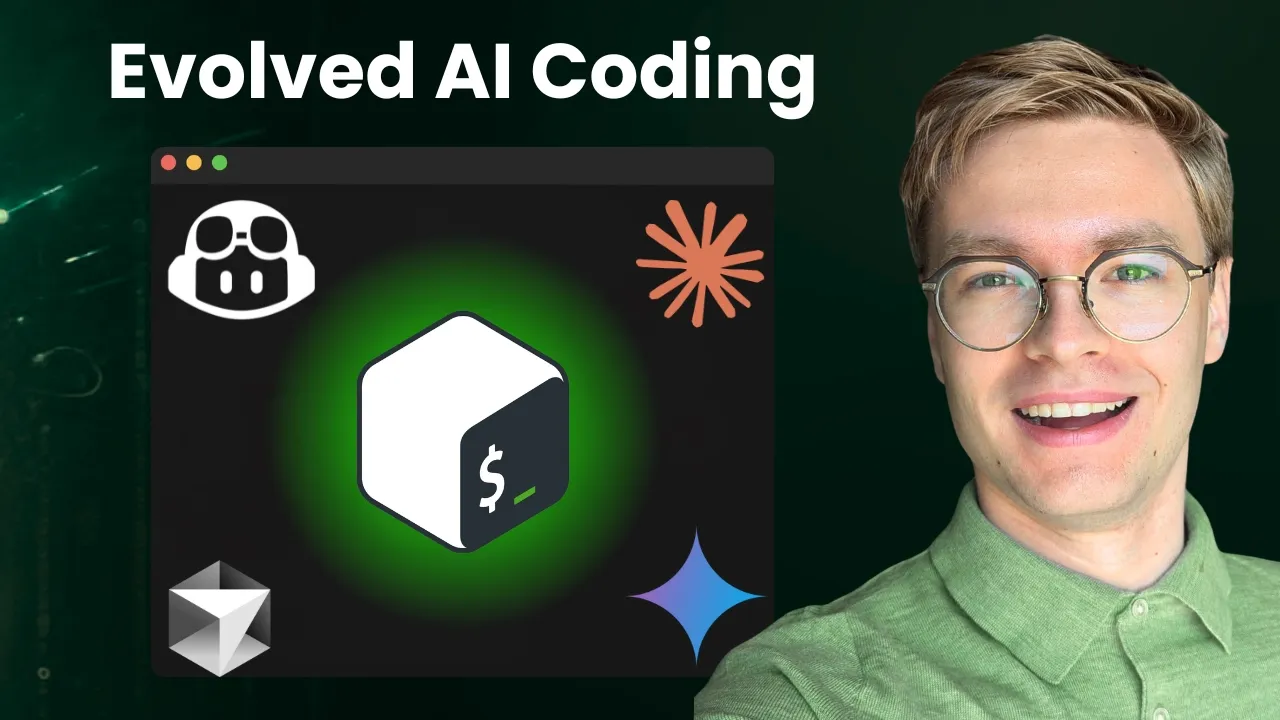Professional AI Development Best Practices Beyond Coding
There’s a massive gap between writing code that works and developing software professionally. This gap isn’t about technical skill, it’s about mindset. Professional development recognizes that changing code is just one step in a comprehensive workflow that ensures reliability, maintainability, and quality. For developers looking to advance their careers, understanding the complete AI engineering career path provides valuable insights into professional growth expectations. Understanding this distinction transforms how you approach every development task.
The Incomplete Picture of Code-Only Development
Many developers, especially those working on personal projects or in informal settings, focus exclusively on making code work. This “vibe coding” approach might feel productive (features get built, applications run), but it’s missing critical elements that separate hobby coding from professional software development.
The problem isn’t that code-only development doesn’t work; it’s that it doesn’t scale. When you’re building applications that real users depend on, especially those handling sensitive operations like payment processing, the stakes change dramatically. A feature that seems to work isn’t enough. You need confidence that it works correctly, consistently, and will continue working as the system evolves.
Testing as a Professional Imperative
In professional contexts, tests aren’t optional add-ons or nice-to-haves. They’re fundamental to the development process. But here’s what many developers miss: tests aren’t just about catching bugs. They’re about encoding your understanding of how the system should behave, creating a safety net for future changes, and providing documentation that’s guaranteed to stay current.
The challenge is that writing comprehensive tests is genuinely difficult and time-consuming. As development tools become more sophisticated and AI assists in writing production code faster, the testing gap often widens. This creates a dangerous situation where code complexity increases while test coverage struggles to keep pace.
The Multi-File, Multi-Session Reality
Professional feature development rarely happens in a single file or a single session. A seemingly simple addition (like adding a new unit of measurement to a calculator) might touch dozens of files across the codebase. Data models need updating, UI components require modification, business logic must be extended, and tests need to cover all these changes.
This distributed nature of professional development creates unique challenges. When work spans multiple conversations with AI assistants or multiple development sessions, maintaining context becomes critical. You need to ensure that all changes are coordinated, that nothing is missed, and that the feature works holistically across the entire system.
Systematic Thinking in Feature Implementation
Professional developers think systematically about feature implementation. Before writing any code, they consider the full scope of changes required. This includes not just the happy path implementation but also error handling, edge cases, performance implications, and how the feature integrates with existing functionality.
This systematic approach extends to how professionals interact with AI coding assistants. Instead of asking for isolated code changes, they think about providing comprehensive context about all related modifications. Building successful AI portfolio projects requires this same systematic thinking across multiple development phases. They understand that AI performs best when it has a complete picture of what’s being built and how different pieces fit together.
The Quality Assurance Mindset
Quality assurance in professional development goes beyond just writing tests. It’s about building confidence through multiple validation layers. This includes code review processes, automated testing at different levels, performance monitoring, and systematic approaches to deployment and rollback strategies.
The professional mindset recognizes that quality isn’t something you add after development. It’s integrated into every step of the process. This means thinking about testability while designing features, considering edge cases during implementation, and building in validation mechanisms from the start.
Bridging the Context Gap
One of the biggest challenges in professional development is maintaining context across different phases of work. When you implement a feature across multiple sessions, you need mechanisms to capture and transfer the full context of changes. This isn’t just about remembering what you did. It’s about ensuring that subsequent work has access to all relevant information about previous modifications.
This context management becomes even more critical when working with AI assistants. Each new conversation needs to understand the full scope of changes made in previous sessions. Professional developers develop strategies for comprehensive context capture and transfer, ensuring that AI assistants can provide consistent, informed assistance throughout the development process.
The Evolution from Hobbyist to Professional
The transition from hobbyist to professional developer isn’t primarily about learning new technologies or frameworks. It’s about adopting a mindset that values completeness, reliability, and systematic quality assurance. It’s recognizing that in professional contexts, “it works on my machine” isn’t sufficient. You need confidence that it works everywhere, for everyone, consistently.
This evolution requires developing new habits and workflows. It means investing time in testing even when it feels unproductive. It means thinking about edge cases even when they seem unlikely. It means maintaining comprehensive documentation and context even when you’re the only developer. These practices might feel like overhead initially, but they’re what enable sustainable, professional software development. For AI-specific implementation patterns that demonstrate professional development practices, explore my comprehensive RAG systems guide which shows how to build robust, production-ready AI applications.
To see how these professional development principles apply in practice with modern AI coding tools, watch the full video tutorial on YouTube. I demonstrate practical workflows for maintaining context across development sessions and ensuring comprehensive test coverage in AI-assisted development. Ready to level up your development practices? Join the AI Engineering community where we share professional workflows and support each other in building production-quality systems.
